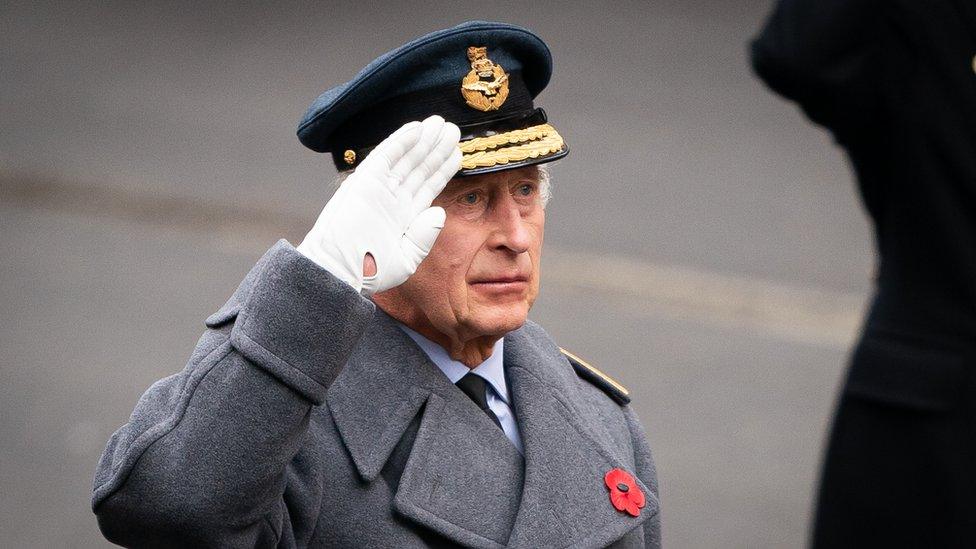Somerset GP's WW1 book will benefit PTSD charity
- Published
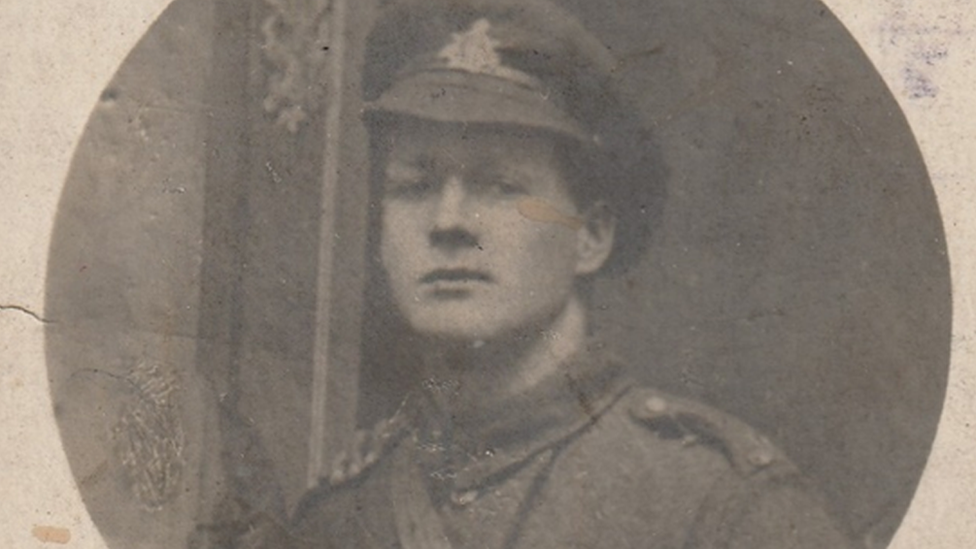
Emrys John fought in the 11th Corps Cyclist Batallion during WW1
A retired GP who worked with shell-shocked veterans has published a novel in aid of a veteran's charity.
Dr David John, from Winscombe, took influence from his grandfather's experiences in World War One when writing 'Harriet's Eternal Tears'.
Dr John said: "My grandfather, Emrys John, had never talked to his daughter - my mother - or anyone else about the war."
The proceeds of the book will go to the Combat Stress mental health charity
Emrys John opened up to his grandson once about his experiences fighting for the XI Corps, Cyclist Battalion in Italy and Northern France before his Alzheimer's took hold.
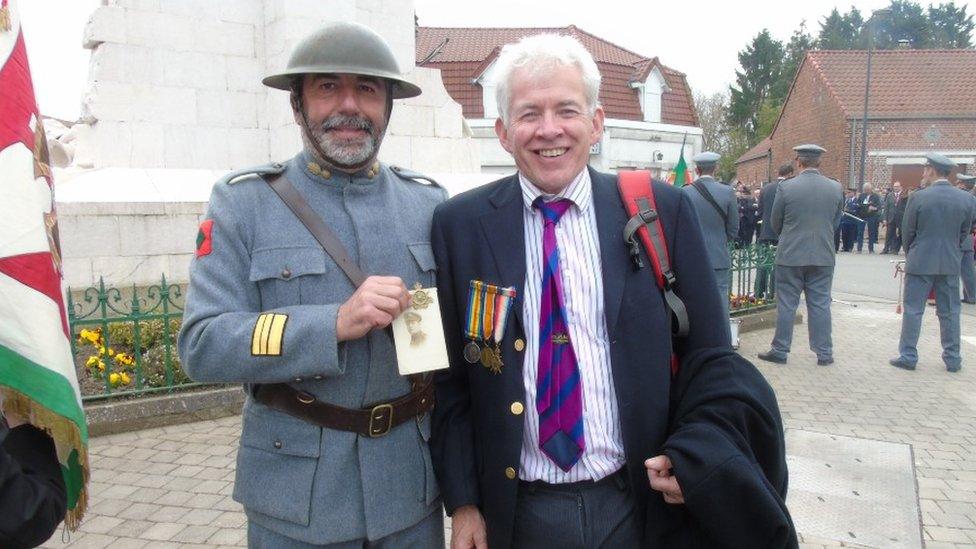
Dr John visited the site of the Battle of the Lys on the centenary
"I was in my teens and he was just beginning to show the effects of Alzheimer's," Dr John explained.
"At the time, I put it down to being a bit of nonsense because he always told a lot of stories.
"It was only later on, after researching it, that it turned out to be true."
The Army Cyclist Corps was formed in the British Army during WW1.
The Corps could rapidly manoeuvre long distances across a battlefield without the needs of horses, heavy machinery or fuel.
When the deadlock of trench warfare began to break towards the end of the war, the Cyclist Corps proved particularly effective.
Dr John explained that his grandfather had been a keen cyclist before the war and had worked as a bicycle messenger in Wales.
"He signed up at age 16, and was in a cyclist battalion," Dr John said.
"Almost the whole of the battalion was either killed or captured at the Battle of the Lys, and my grandfather was imprisoned at the Black Hole of Lille."
The author said that 95% of the characters in the book were real people and took a great deal of research, but he has taken creative license with some of the tale.
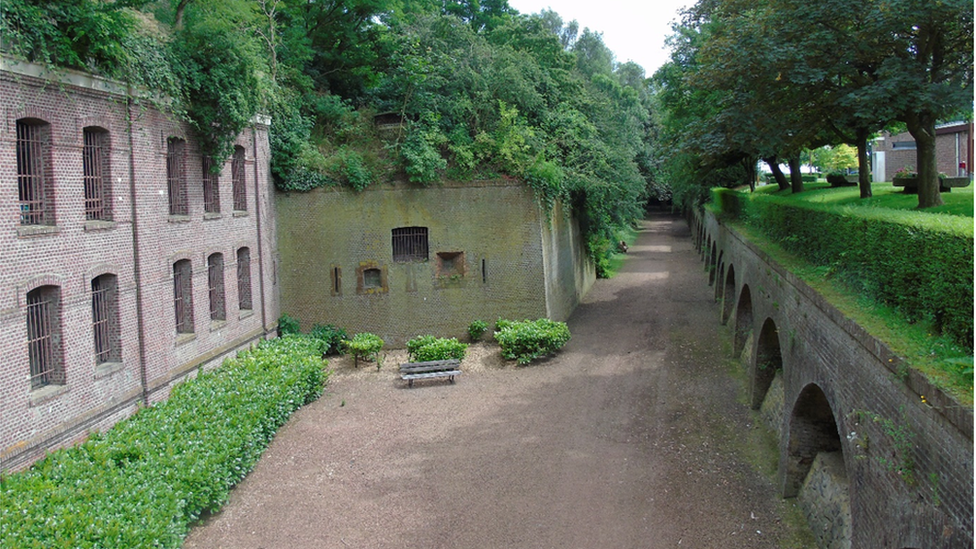
The Black Hole of Lille was notorious for its poor conditions
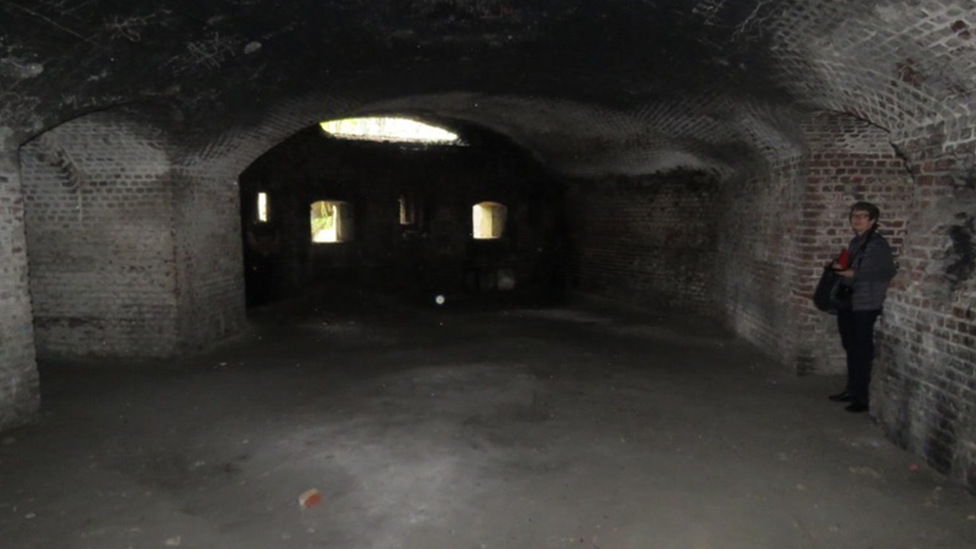
The Battle of the Lys was fought in Northern France from 7 to 29 April, 1918, and was part of the final and desperate German spring offensive in Flanders.
Fort MacDonald in Lille was a German POW camp which earned the nickname the 'Black Hole' due to the terrible conditions subjected to Allied soldiers that were imprisoned there.
Emrys' brother David - the author's namesake - was a sergeant in the Army, but was killed at Mametz Wood in 1916.
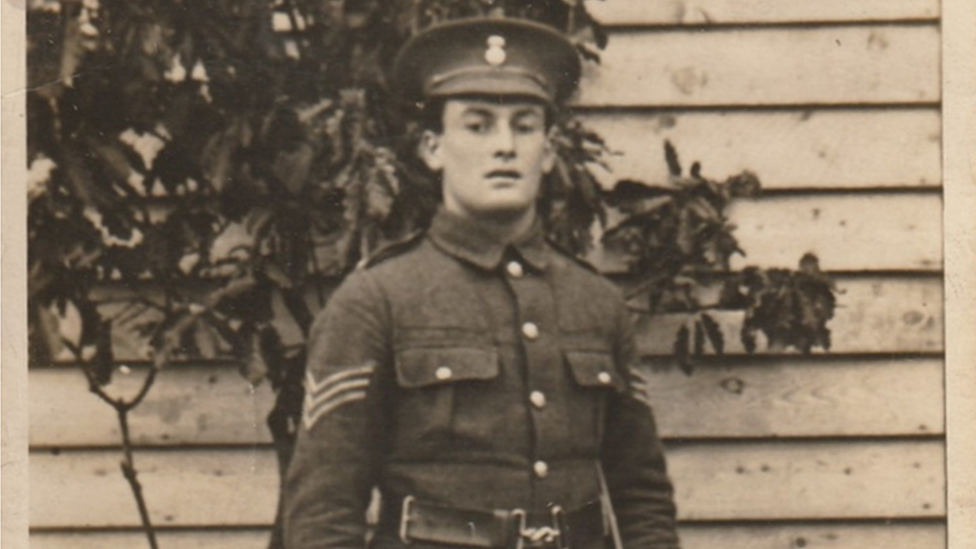
David Benjamin John - the author's namesake - was killed in action in 1916
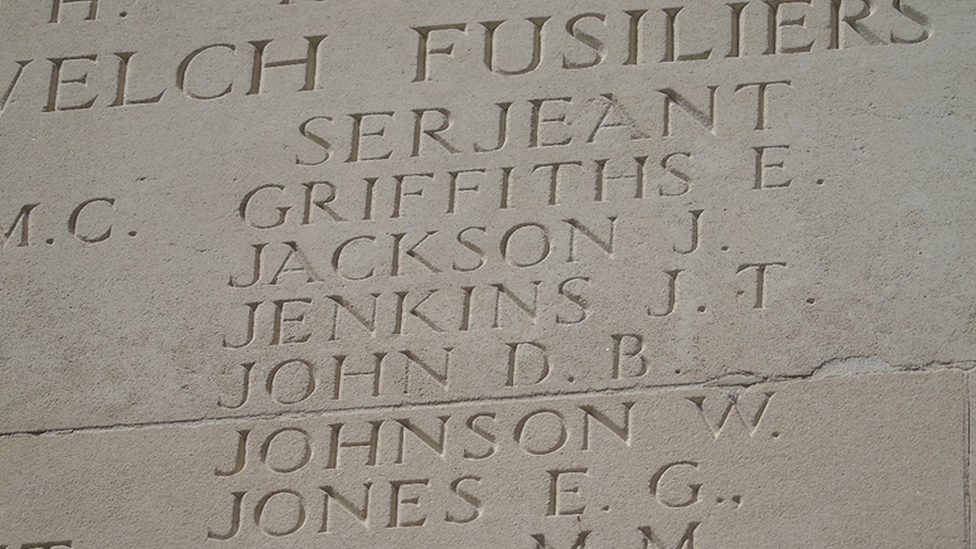
Dr David John said that it was on a trip to France for the centenary of the Battle of the Lys when he decided to write Harriet's Eternal Tears.
The novel itself is written from the point of view of David John's great-grandmother, Harriet John, and the correspondences, uncertainties and terror of her sons going off to war.
Dr John said: "I hope it makes you think about the mothers of soldiers on both sides of the terrible conflicts that we are having at the present time."
"It's not just a war story, it's about the emotional reaction of a mother to losing her son."
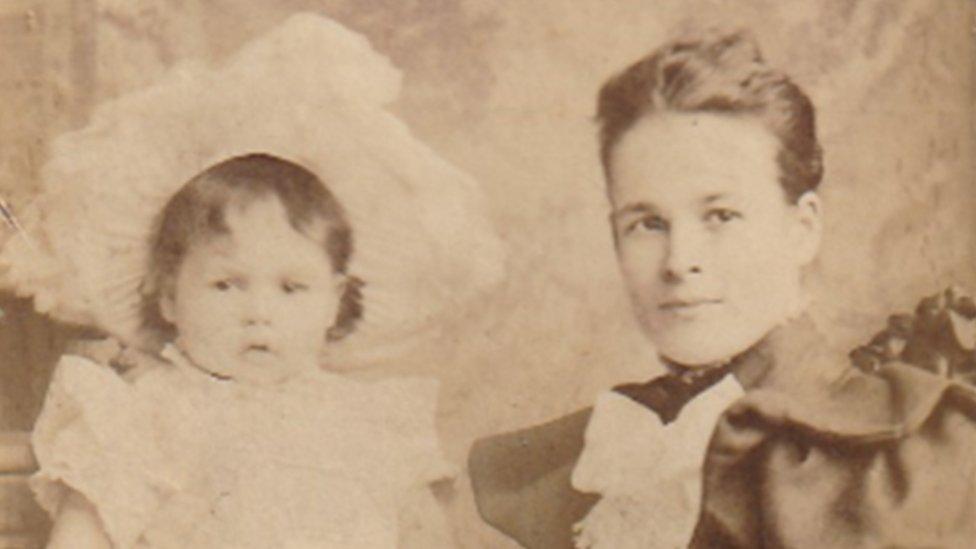
Harriet John with daughter Mary, who died of measles in 1914
The author said that during his career as a GP he met several veterans of the war in Afghanistan.
"They were very troubled people. Unfortunately, there wasn't much help from the local NHS psychiatric service.
"But the veterans and I received lots of support from a charity called Combat Stress. They were excellent."
The Combat Stress charity was founded in 1919, specifically to provide support to soldiers suffering from post-traumatic stress disorder (PTSD).
Robert Marsh, director of fundraising at Combat Stress, said: "We are incredibly grateful to Dr David John for donating all the profits from his novel, which will help to fund our specialist treatment to veterans across the UK with complex mental health problems.
"'Harriet's Eternal Tears' is a beautiful and emotional story, depicting the horrors and casualties of WW1.
"Combat Stress was born from that war to support the servicemen who returned home with shell shock.
"It is thanks to generous supporters like David that, more than a century later, we can continue to be there for those veterans who need us."

Follow BBC West on Facebook, external, X, external and Instagram, external. Send your story ideas to: bristol@bbc.co.uk, external
Related topics
- Published12 November 2023
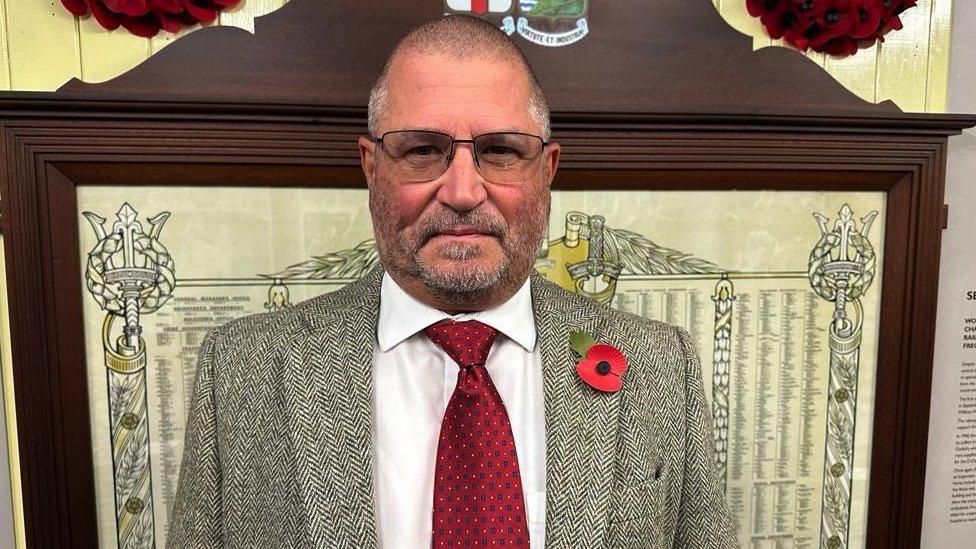
- Published12 November 2023
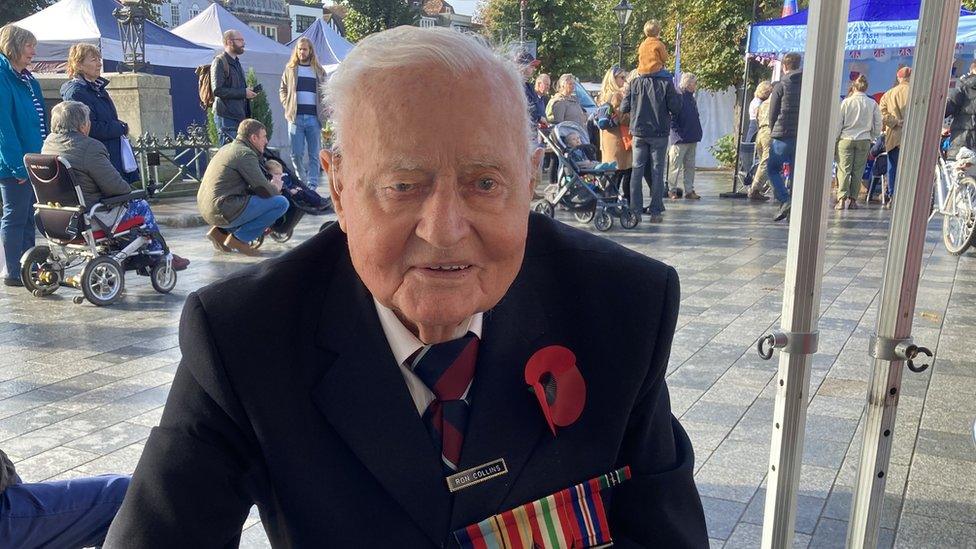
- Published12 November 2023
